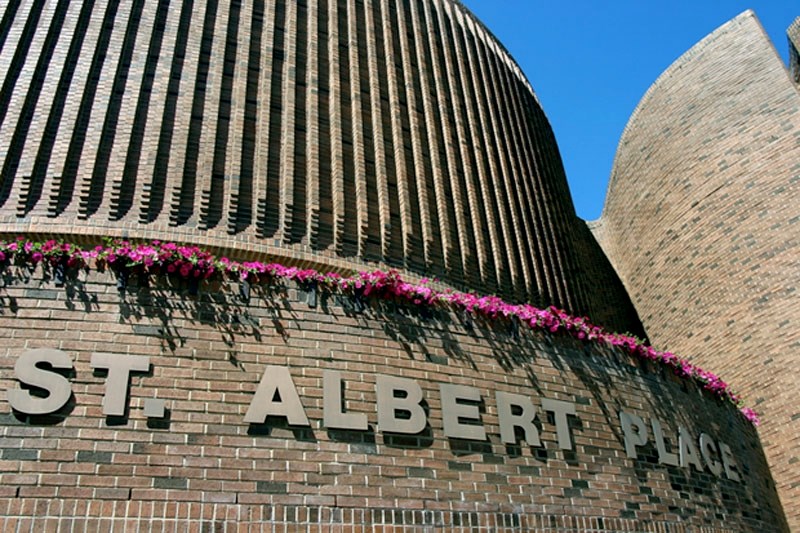If and when the ministerial inspection of St. Albert begins, it will be the first time the province has ever inspected a city this large.
More than a month after St. Albert councillors asked for a ministerial inspection of the city, the process has yet to begin, but Jerry Ward from the province’s Municipal Affairs department confirmed in an email that a request was received July 29.
He said no decision has yet been made on a possible inspection, and would not provide any timeline for when that decision would be made. Ward did say the province has never conducted an inspection on a municipality as large as St. Albert, but won’t discuss any specifics of what that might mean.
Inspecting a larger-size city, however, may not necessarily translate into more money or time than usual, according to one expert experienced in the municipal inspection process.
George Cuff has been involved with several inspections in recent years, and has also been involved with helping to review the relevant provincial legislation. He noted it’s interesting that a city of this size has never been inspected, but it won’t necessarily change the process.
“We’re talking about discussions with a council of seven and individual senior management,” he said. “It’s if you’re going beyond that into a whole variety of other issues that these things become more complicated and therefore more costly.”
Ward said inspections typically cost from $40,000 to $70,000, which Cuff said is a reasonable estimate depending on what an inspection would entail.
What it will come down to is what the minister includes in the terms of reference for the inspection, in the event she decides to move forward with the request.
At the July 4 council meeting, councillors passed a resolution calling on the minister to do an inspection pursuant to section 571(1)(b) of the Municipal Government Act. The motion did not refer to any specific areas on which council would like the minister to focus.
In a letter dated July 15, Mayor Nolan Crouse informed the minister of the request. Ward said he could not comment on the specifics of this request. He said the process is much the same, whether as a result of a council motion, ministerial direction or a petition from electors.
The first step, once the request is received, is for the province to do a preliminary review to identify concerns and issues that led to the request and determine what action, if any, is needed.
When the minister determines an inspection is warranted, the province will hire an independent consultant through a request for proposals. This typically costs from $40,000 to $70,000, depending on the scope of the inspection. This cost is borne by the province, not the municipality.
From that point, it typically takes about eight months until the inspector makes a report to the public and council. The inspector has the authority to require a councillor or employee to attend for an interview and require them to give evidence under oath or provide any documents the inspector requires. The inspector also has the power to hire experts or people with other specific or technical knowledge.
Inspections typically include but are not limited to reviews of bylaws, policies, committee structures, organizational structure, council meeting procedures, council minutes and the financial status of the municipality.
Once the report is completed, the minister can make orders or directives she believes is necessary. If those directives are not carried out to the minister’s satisfaction, she can dismiss the city manager, or any member of council.
Ward confirmed that in cases of specific accusations of wrongdoing the minister has the power to launch an inquiry, but no inquiry has ever been undertaken.
Since 2012, the province has carried out 15 inspections: one as a result of a ministerial directive, six as a result of council motions and eight as a result of petitions from electors.
Cuff said this figure has increased dramatically over the years, with more requests for inspections going to the province now than in the past. He attributes the increase to citizens having a better understanding of their rights, and being more engaged in demanding good governance from their elected officials.
“They’re interested in having a council that can function as a body, regardless of the fact they may not agree on variety of issues. The key is for this council to find ways to work in a collegial fashion, respecting the fact they don’t agree,” he said.
Mayor Crouse, who voted against the motion along with Coun. Tim Osborne, said he respects council’s decision but still feels an inspection will be bad for the city – and for the councillors who want it. The reports that have come out, including one recently conducted in Fort MacLeod, don’t typically paint municipalities or councils in a positive light.
“I said in the council meeting and I’ll repeat it. Be careful what you wish for,” he said. “When they come and do the interviews with each of us, there’s going to be some things that get shared and said that the individuals are going to have to answer to.”




